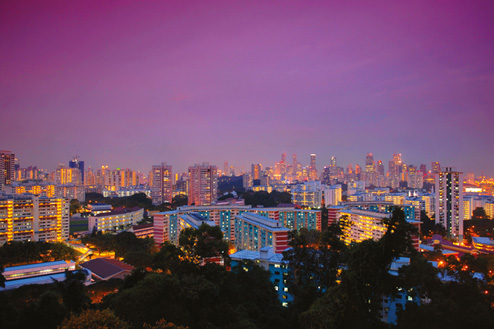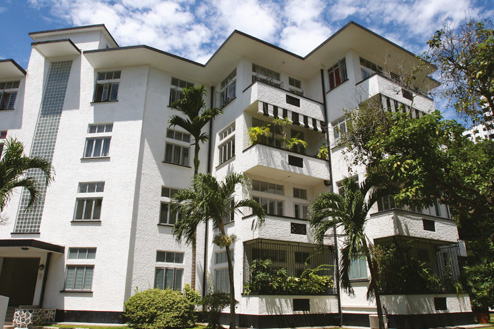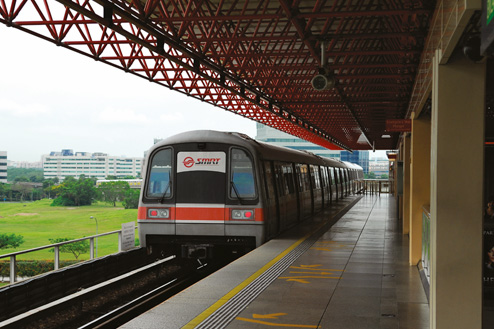Driving In Singapore
While the cost of owning and operating a car has come down significantly in recent years, Singapore is still not a cheap place to be a car-owner. Petrol isn’t particularly cheap; electronic road pricing (ERP) charges can add up if you drive in and out of the CBD or on expressways regularly and the cars themselves are expensive to get on the road. Add to this a limited resale market for used cars and a cheap and efficient public transport system, and it may be worth careful consideration as to whether you really need a car.
That said, driving in Singapore can be quite easy compared to other major cities around the region, or even back home, for that matter. Singapore traffic drives on the left side of the road. There are traffic lights at all major intersections and few roundabouts to negotiate. Singapore drivers are generally thoughtful, although there is a tendency to float across lanes and not to signal. Navigating the roads can be a breeze once you get used to which signs to look out for. There are few cyclists, pedestrians know their place and roads are well marked and signed. Singapore uses an electronic road pricing system to control traffic congestion and every vehicle has an ERP card reader on the dashboard. Overhead gantries will indicate when an ERP is in operation and the charge will be automatically deducted from the ERP CashCard inserted in your reader. You can top up at ATMs displaying the CashCard logo, most gas stations and 7-Eleven stores.
Traffic Rules & Regulations
Speed limits in Singapore are 50km/h unless otherwise posted. On expressways the speed limit is generally 90km/h, although sections of certain expressways still have an 80km/h limit. There are automatic speed cameras, marked with a blue and white sign with a camera on it, set up at various points around the island in order to enforce speed limits. The traffic police also set up laser speed cameras so it’s best to respect the speed limit.
If you’re caught on camera you’ll receive a ticket in the mail within a week. If you’ve hired a car and are ticketed, you will have to pay the fine. A speeding ticket starts at $130 for going anything up to 20km/h over the limit and progresses to $170 plus a court appearance. Demerit points are also noted on your licence, which can lead to its suspension if you accumulate enough of them.
If you’re in an accident, you have to stop your car and assess the situation. If there’s significant damage, injury or damage to public property, call the police on 999. If it’s a minor fender bender you can take pictures if you have a camera, take down the details of the other parties involved and agree to a course of action, be it to register the accident with the police or take it up with your respective insurance companies.
Driving Licence
As a foreigner, you’ll need a valid driving licence from your home country and an international driving permit to drive a rental or private car. Once you’ve been in Singapore for more than 12 months you’ll have to convert your licence to a local one. This requires only a simple theory test and a small fee.
Parking
Parking is generally not a problem. Shopping malls and office and apartment buildings generally have ample carparks, almost all of which are paid lots. Most of these run on an electronic system that can be paid using your ERP CashCard. Some systems read the card directly from the unit on your dashboard, while others require you to insert the card in the gantry machine at the entrance and exit of the carpark.
Other carparks and most street-side parking work on a pre-purchased coupon system. The coupons have partly perforated holes so you can punch out the date and time that you’re parking for and display the coupon on your dashboard. Parking coupons can be purchased at most gas stations, SingPost outlets, NTUC Supermarkets and Cheers convenience stores. Parking generally costs around $1-1.50 for the first hour and $1 per hour thereafter, although prices can vary and are generally cheaper outside the CBD.
Petrol Stations
SPC, Shell and Esso are the major petrol station operators here. Low-sulphur diesel, as well as a range of unleaded gasoline, from standard to ultra-premium, is available at most stations. Diesel fuel is quite cheap in Singapore, at around $1.20 per litre, while unleaded fuels cost from $1.50-1.80 per litre depending on the grade. Almost all stations are full-service and you can often pay at the pump with a debit card.
Most stations also have a convenience store where you can buy snacks, drinks and car-related products. Manual car washes are also common at petrol stations. Car service centres at petrol stations aren’t as common in the centre of town, where space is at a premium, but can be found at many of the stations a bit further out.













